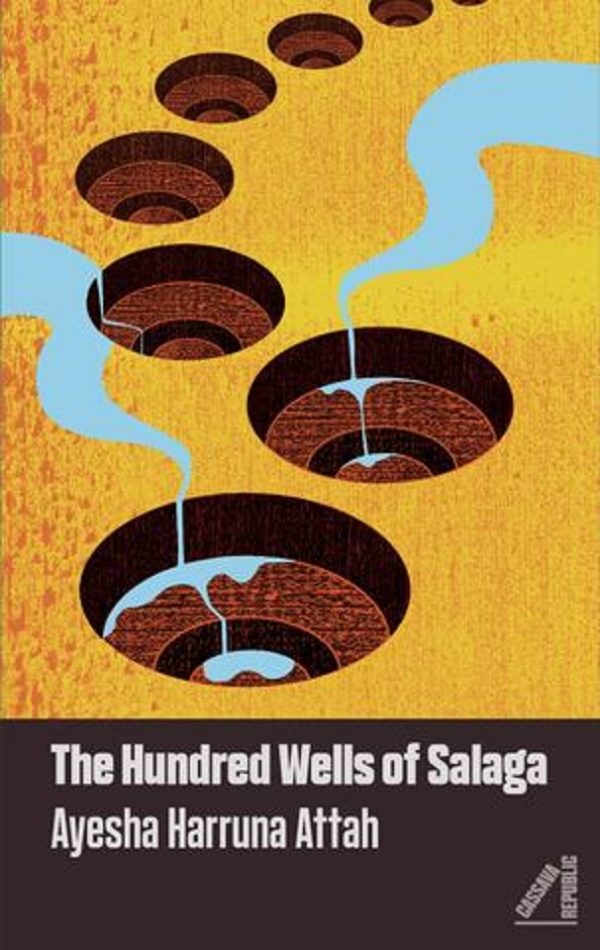Haruna Ayesha Attah is the author of two novels: the Commonwealth Prize-shortlisted Harmattan Rain (2009) and the Kwani? Manuscript Contest-nominated Saturday’s Shadows (2015). Ayesha is a 2014 Africa Centre Artists in Residency Award Laureate and Instituto Sacatar Fellow. In 2016, she won the Miles Morland Scholarship to write a nonfiction book about kolanuts.
Her third novel, The Hundred Wells of Salaga, is forthcoming from Cassava Republic and Random House.
Click on the video above to watch her talk about it.

Here is a description of the book:
Aminah lives an idyllic life until she is brutally separated from her home and forced on a journey that turns her from a daydreamer into a resilient woman. Wurche, the willful daughter of a chief, is desperate to play an important role in her father’s court. These two women’s lives converge as infighting among Wurche’s people threatens the region, during the height of the slave trade at the end of the 19th century.
Set in pre-colonial Ghana, The Hundred Wells of Salaga is a story of courage, forgiveness, love and freedom. Through the experiences of Aminah and Wurche, it offers a remarkable view of slavery and how the scramble for Africa affected the lives of everyday people.
Attah’s The Hundred Wells of Salaga joins Manu Herbstein’s Ama: A Story of the Atlantic Slave Trade (2002)—winner of the Commonwealth Prize for Best First Book for Africa Region—and Yaa Gyasi’s Homegoing (2015)—winner of the 2017 National Book Critics Circle Award’s John Leonard Prize, the 2017 PEN Hemingway Award for Debut Fiction, a 2017 American Book Award—in a group of novels by Ghanaian authors set during the Slave Trade.
Congratulations to Haruna Ayesha Attah.
***
Graph image from Ehanom Review.









COMMENTS -
Reader Interactions